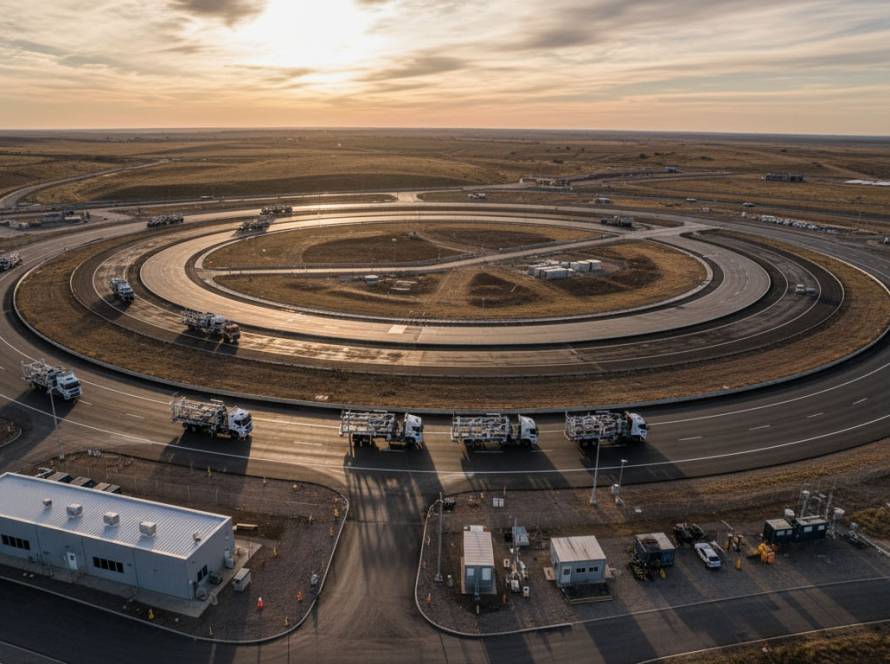If you’ve ever noticed cracks, puddles, or fading on your driveway, you’ve seen firsthand how the UK’s unpredictable weather can take its toll. From heavy rain and frost to sudden heatwaves, our climate plays a huge role in how long a surface lasts — and which materials perform best over time.
Understanding how weather shapes your driveway isn’t just useful — it’s essential. In this blog, we’ll explore how the UK’s ever-changing climate affects surfacing materials and what you can do to protect your investment for the long term.
1. The Challenge of the British Climate
The UK experiences an average of 150 days of rain every year, combined with cold winters and occasional summer heat spikes. These constant changes create three main challenges for driveways:
- Water saturation: Constant rainfall can penetrate poorly built surfaces, weakening the base.
- Freeze-thaw cycles: When trapped water freezes, it expands, causing cracks and surface lift.
- UV exposure: Prolonged sunlight can dry out and fade asphalt or tarmac.
Because of this, the material and method used during surfacing are just as important as the design. Choosing the wrong surface could mean costly repairs after only a few seasons.
2. How Rainfall Affects Your Driveway
Rain is one of the UK’s biggest culprits when it comes to driveway damage. When water pools or seeps through cracks, it destabilises the foundation beneath. Over time, this causes soft spots, potholes, and structural weakness.
Best materials to resist rain damage:
- Resin-bound driveways – Fully permeable, letting water drain naturally into the ground.
- Tarmac driveways with proper drainage – When installed correctly, tarmac sheds water efficiently.
A professional installer will always include a slight gradient or drainage channel to direct rainwater away from your property. It’s a small detail that makes a massive difference in longevity.
3. The Freeze-Thaw Effect: Why Winter Is Hard on Driveways
Winter frost is one of the most destructive natural forces for surfacing. Water trapped beneath the surface freezes and expands, pushing the material upwards. When it thaws, small gaps form — leading to cracks, crumbling edges, and long-term damage.
Tips to protect against freeze-thaw damage:
- Choose tarmac or asphalt designed for flexibility — it expands and contracts without breaking.
- Keep your driveway sealed to prevent moisture absorption.
- Ensure proper base preparation; weak sub-bases crack easily in winter.
Professional surfacing contractors know to compact and layer materials precisely to reduce the risk of winter deterioration.
4. Summer Heat and UV Exposure
While the UK isn’t known for scorching summers, the occasional heatwave can still impact driveway performance. Direct sunlight and high surface temperatures can soften asphalt, cause resin discolouration, or dry out joints in block paving.
Solutions for summer durability:
- Use UV-resistant resins for colour stability.
- Opt for darker tarmac mixes that retain structure even in heat.
- Apply protective sealants every few years to reduce fading and wear.
Maintaining your driveway during summer helps prevent early ageing and preserves its clean, finished look.
5. Choosing the Right Surface for the UK Climate
Every driveway material reacts differently to the British climate. Here’s a quick comparison of how they perform:
| Surface Type | Strengths | Weather Concerns | Maintenance Level |
|---|---|---|---|
| Tarmac | Tough, flexible, and water-resistant | Can soften under high heat | Low |
| Resin-Bound | Permeable, stylish, eco-friendly | Needs proper base preparation | Low |
| Block Paving | Decorative and repairable | Can shift or grow weeds in frost | Medium |
For most UK homeowners, tarmac and resin-bound surfaces strike the perfect balance between performance, appearance, and cost-effectiveness.
6. Drainage: The Unsung Hero of Driveway Longevity
No matter how durable your material is, poor drainage can ruin it. Standing water leads to moss, algae, and long-term sub-base erosion. That’s why experienced surfacing specialists prioritise drainage design during installation.
Good drainage includes:
- Correct surface gradient (at least 1:60 slope).
- French drains or channel drains along edges.
- Permeable sub-base layers to manage water flow.
A properly drained driveway not only lasts longer but also keeps your property looking clean and professional year-round.
7. Seasonal Maintenance Tips for UK Homeowners
To maximise your driveway’s lifespan, simple seasonal care goes a long way:
Spring:
- Power wash to remove salt, moss, and dirt.
- Check for cracks after frost and seal immediately.
Summer:
- Apply a sealant to tarmac or resin surfaces for UV protection.
- Avoid parking heavy vehicles on freshly laid tarmac until cured.
Autumn:
- Clear leaves and debris to prevent staining and drainage blockages.
- Inspect edges and borders before winter moisture sets in.
Winter:
- Use de-icing salt sparingly — excess can damage resin and block paving.
- Shovel snow gently to avoid surface scratches.
Consistent care adds years of life to any professionally installed surface.
8. Professional Surfacing: Built to Withstand Every Season
While DIY driveways may look good initially, they rarely hold up against British weather. Professional surfacing ensures:
- Correct material mix and thickness for your region.
- Proper compaction and base layering.
- Built-in drainage and temperature tolerance.
At Total Surfacing, we combine engineering expertise with durable materials to deliver driveways and surfaces that perform beautifully through rain, frost, and sunshine alike.
Our team serves residential, commercial, and local authority clients throughout the UK, providing reliable solutions built to last.
👉 Learn more about our professional surfacing services and request a quote here:
Conclusion
The UK’s unpredictable climate doesn’t have to mean unpredictable driveway performance. With the right materials, drainage design, and expert installation, your surface can stay strong and attractive through every season.
Whether you’re upgrading your home or resurfacing a commercial area, Total Surfacing provides durable, weather-resistant solutions tailored to the British environment. When it comes to protecting your investment, the weather doesn’t stand a chance.


